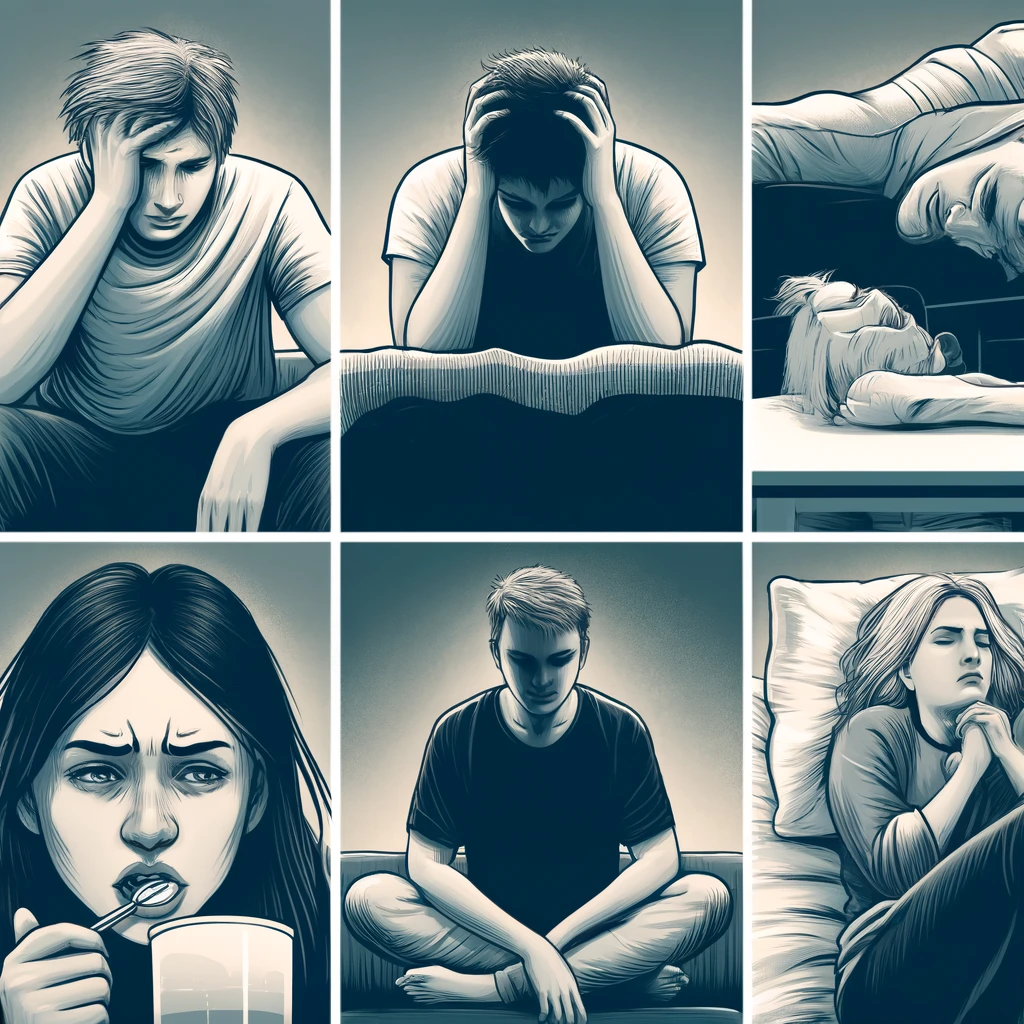
Depression is a common and serious mental health condition that affects millions of people worldwide. It goes beyond just feeling sad or having a bad day; it is a persistent feeling of sadness and loss of interest that can interfere with daily functioning. Understanding depression, its causes, symptoms, and treatment options can help individuals recognize the condition and seek appropriate help.
What is Depression?
Depression, also known as major depressive disorder, is a mood disorder characterized by a persistent feeling of sadness and loss of interest. It affects how a person feels, thinks, and behaves, leading to various emotional and physical problems. Depression can interfere with a person’s ability to perform daily activities, and in severe cases, it can lead to thoughts of harming youlself.
Causes of Depression
- Biological Factors:
- Genetics: Family history of depression can increase the risk.
- Brain Chemistry: Imbalances in neurotransmitters such as serotonin and dopamine.
- Psychological Factors:
- Personality Traits: Low self-esteem or being overly self-critical.
- Cognitive Patterns: Negative thinking patterns.
- Environmental Factors:
- Stressful Life Events: Events such as loss of a loved one, divorce, or job loss.
- Social Isolation: Lack of support and loneliness.
- Substance Abuse: Alcohol and drug abuse can contribute to depression.
Symptoms of Depression
- Persistent sad or anxious mood
- Loss of interest in activities
- Changes in appetite or weight
- Insomnia or excessive sleeping
- Fatigue or low energy
- Feelings of worthlessness or guilt
- Difficulty concentrating
- Thoughts of death or suicide
- Physical symptoms like headaches or chronic pain
Treatment Options
- Psychotherapy:
- Cognitive Behavioral Therapy (CBT): Identifies and changes negative thought patterns.
- Interpersonal Therapy (IPT): Focuses on improving relationships and communication.
- Medication:
- Antidepressants: Help balance brain chemicals.
- Mood Stabilizers: Manage mood swings.
- Antipsychotics: For severe cases.
- Lifestyle Changes:
- Exercise: Regular physical activity improves mood.
- Healthy Diet: Supports overall mental health.
- Sleep Hygiene: Adequate and quality sleep.
- Stress Management: Mindfulness and relaxation techniques.
- Support Groups: Connecting with others for emotional support.
Depression is a serious but treatable condition. Understanding its causes, recognizing the symptoms, and seeking appropriate treatment can significantly improve the quality of life for those affected. If you or someone you know is struggling with depression, don’t hesitate to reach out to a healthcare professional for help.
Struggling with depression? At Brain Health Psychiatry, we’re here to support you every step of the way. Book an appointment with us today and start your journey towards better mental health. Remember, if you need immediate help, always call 911. Your well-being is our priority.